Make Way For Tomorrow: The Masters of Cinema Series
There are certain films that carry such an emotional impact that even someone with a heart of stone couldn't help but be moved by them and Make Way for Tomorrow is one of them. According to Peter Bogdanovich, at a dinner with Orson Welles, he mentioned the film to which Welles replied that it is the saddest film ever made and would "make a stone cry". When you consider that the film was directed by Leo McCarey who worked with Laurel and Hardy and The Marx Brothers (amongst others) and is the man responsible for making such classic comedies as Duck Soup and The Awful Truth, it just shows what range he had but he was fairly unforgiving that he won an Oscar for The Awful Truth and not for Make Way for Tomorrow, which he always regarded as its finest film, saying in his acceptance speech "Thanks, but you gave it to me for the wrong movie.'
The film was a box office flop as people in 1937 were just getting over the Great Depression and wanted to be entertained, not spend 90 minutes watching a tearjerking melodrama, and Make Way for Tomorrow is the sort of film that you will need at least one hankie nearby when you watch the disc.
Set in 1937, the film follows an elderly couple, Barkley and Lucy Cooper who have fallen behind on their payments to the bank and are about to lose their home. With their children around, they tell them what has happened, said that the bank gave them six months to pay up and, when the children say that this is ample time to find them alternate accommodation and ask what they have to move out by, to reply comes "Tuesday". With no time to raise money to buy a smaller house and with each of their houses pretty much full, there isn't anywhere for the couple to stay and the only solution is to split them up with Lucy stay with one of her sons and daughter-in-law and Barkley going to stay with one of their daughters and son-in-law.
The children make it quite clear that they really don't want them staying even though they love them to bits as they are 'in the way', interrupting such things as when the daughter gives bridge lessons or when Barkley, who has a cold, insults the young doctor who comes, basically telling him he knows nothing about medicine and that his wife knows more. The only friend that Barkley makes is an old Jewish newsagent but, because of some slight anti-Semitism, his children frown at that relationship and do all they can to stop it happening. In order to get Barkley out of the way, they convince the doctor to recommend that he would be better off travelling to California to stay with another daughter and where the winters are warm so, as part of his travel arrangements, he goes to New York City where he meets up with his wife who, unbeknownst to him, has agreed to go into a home for 'aged women' just to get out of everyone's hair.
Once in the city, they begin reminiscing about their honeymoon which they spent there 50 years ago -- the last time they were away from their home together. During that time the city they go to the hotel in which they stayed back in 1887 where they are treated as honoured guests by the new owner and enjoy some drinks and a meal before dancing till it is time to leave.
This theme of parents being seen as a burden on their children is something that probably influenced Yasujirô Ozu when writing and directing his masterpiece, Tokyo Story -- one of the greatest films ever made. That Make Way for Tomorrow begins with some text that finishes with the phrase "honor thy father and mother" draws in a Biblical theme which harks to McCarey's staunch Irish Catholicism which is surprisingly absent from the rest of the film. It is a universal theme that even applies to today when it is so easy to put pensioners away in a home rather than care for them yourself and have several generations under the same roof.
There are many travesties at the Academy Awards when you look back at question why certain films just weren't recognised -- why did Citizen Kane lose out How Green Was My Valley? There are numerous examples of great movies being bizarrely and quite inexplicably overlooked in favour of an inferior piece of work (Ordinary People beating Raging Bull, for example) but the fact that Make Way for Tomorrow wasn't even nominated for a single award just beggars belief. I suppose it didn't help that Leo McCarey had two films out that year and that the Academy obviously preferred The Awful Truth to his masterpiece (although as a long-standing Marx Brothers fan I prefer Duck Soup).
Everything about this film is brilliant from the writing to the acting and direction and everything in between. Although at least 10 years younger than their characters, Beulah Bondi and Victor Moore are quite convincingly in their portrayal of people in their mid-70s (Victor Moore was 46 at the time) as they act old and the make-up, which always looks better in black and white, see Citizen Kane for an example, is extremely convincing at ageing these two fine actors.
The Disc
Extra Features
The 20 minute interview with Peter Bogdanovich is fascinating as he has interviewed so many great filmmakers that he is able to name drop with abandon and talks about his dinner with Orson Welles and talking to members of the cast and crew to see what they had to say about the film. Bogdanovich is an interesting speaker who is able to talk at great length without seeming to draw breath and is very measured so you have time to take in every bit of information whilst he is speaking.
There is also a 21 minute piece with Gary Giddins in which he discusses the social and political themes that underpin the film and Leo McCarey's career as a whole. It is a thoroughly involving and extremely authoritative piece written and delivered by someone who clearly knows a great deal about McCarey, his background and career.
N.B. both of these are presented in high-definition.
There is also a booklet which is a great read with an essay by Geoffrey O'Brien and an excerpt from the original novel, Years Are so Long, by Josephine Lawrence.
The Picture
Presented in the Original Aspect Ratio of 1.37:1, the film looks extremely good with excellent monochrome photography and crisp edges. There is some evidence of ghosting and some graining that it's to be expected for a film now over 70 years old and a generally looks absolutely superb. There are a couple of slightly amusing scenes when the old couple walk down the street with a rear projection background which is clearly moving faster than they are!
The Sound
The original Mono soundtrack is presented via a DTS-HD Master Audio 2.0 Mono track which does a splendid job with the dialogue and score, presenting both clearly and crisply although there is a degree of background hiss throughout the film and the odd crackle which, although slight, is still there and probably will always be regardless of the amount of time and money spent on restoration. They do not spoil your understanding and enjoyment of the film as you become so engrossed that you only notice them when you are listening for them.
Final Thoughts
Make Way for Tomorrow is a brilliant film by a master director, not quite as good as Duck Soup, but still a remarkable piece of filmmaking with superb performances by the entire cast helped by some terrific make-up work. Orson Welles was right in saying that this is a film that would "make a stone cry" and I would defy anyone to get to the end without at least a lump in their throat.
The AV quality is extremely good and, with two fascinating featurettes and a booklet, this is a wonderful set that is worth a place in any film fan's collection.
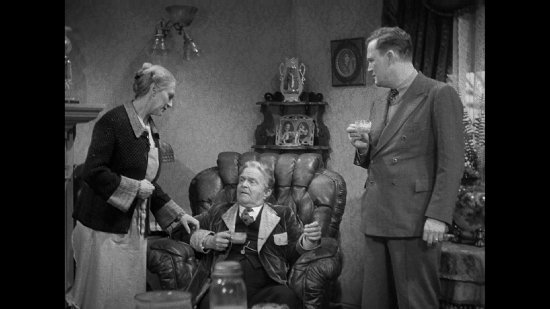
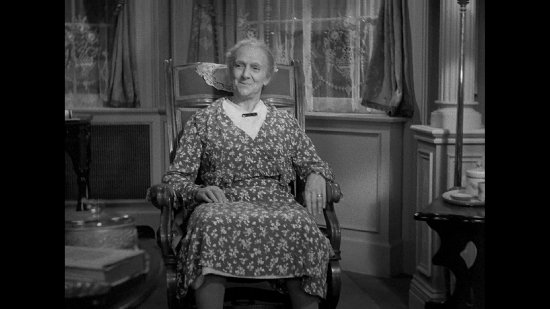
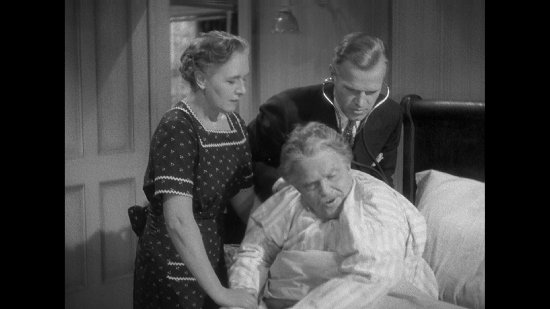
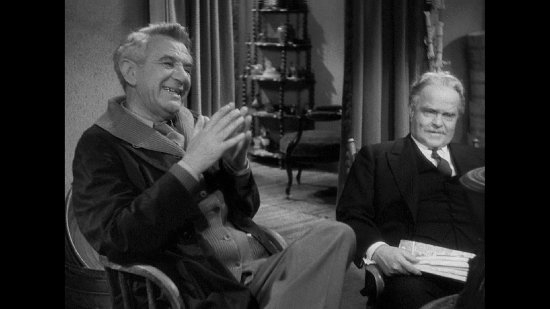
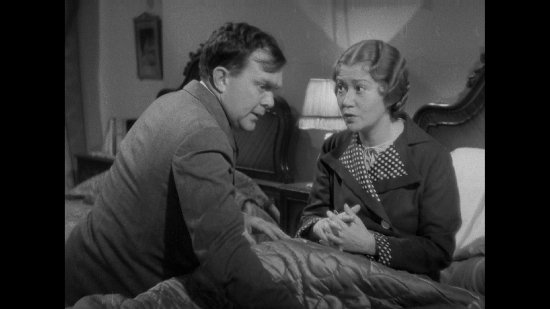
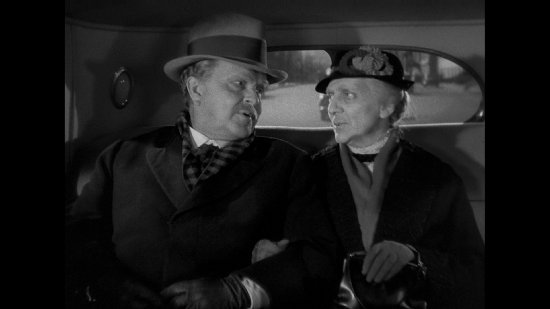
Your Opinions and Comments
Be the first to post a comment!